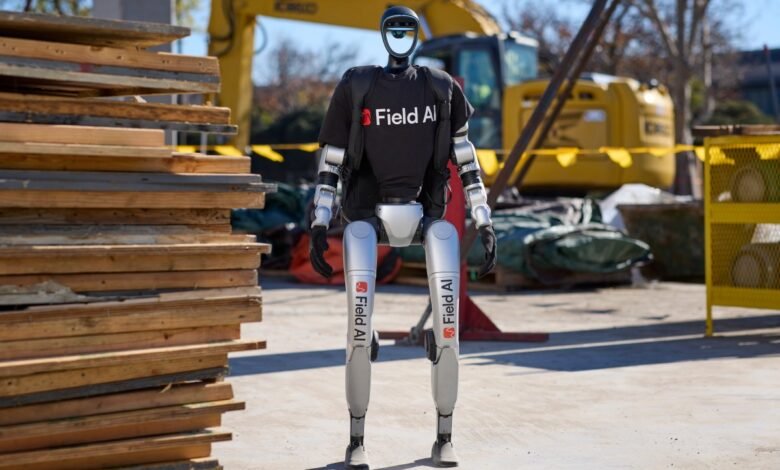FieldAI Secures $405M to Develop Universal Robot Brains

▼ Summary
– FieldAI has raised $405 million, including a $314 million round in August co-led by Bezos Expedition, Prysm, and Temasek, to develop foundational embodied AI models for robots.
– The company builds “Field Foundation Models,” which are general-purpose AI models rooted in physics to help robots adapt to new environments while managing risk and safety.
– Unlike traditional AI, embodied AI controls physical robots in real-world environments, with FieldAI aiming to create a single robot brain that works across different robot types and environments.
– A key innovation involves adding a physics layer to AI models, allowing robots to assess their confidence in decisions and operate within defined risk thresholds, especially in dangerous settings.
– FieldAI, founded in 2023 by CEO Ali Agha, has secured contracts in construction, energy, and urban delivery and will use the funding to ramp up production and expand internationally.
FieldAI, a robotics and artificial intelligence firm based in Irvine, California, has successfully raised $405 million in funding to advance its development of what it terms “foundational embodied AI models.” These systems are designed to function as universal robot brains, enabling a wide range of machines, from humanoid robots and quadrupeds to autonomous vehicles, to adapt intelligently and safely within unfamiliar environments.
The funding was secured across several previously undisclosed investment rounds, with the most recent injection of $314 million occurring in August. This round was co-led by Bezos Expedition, Prysm, and Temasek, with additional support from Khosla Ventures, Intel Capital, and Canaan Partners, among other investors.
Unlike conventional AI models that process text or images, embodied AI operates within physical systems, allowing robots to navigate and interact with real-world settings. FieldAI’s proprietary “Field Foundation Models” integrate principles of physics, providing machines with a deeper understanding of their surroundings and the capacity to assess risk dynamically.
According to FieldAI founder and CEO Ali Agha, the core objective is to create a single, highly adaptable artificial intelligence that can function across various robotic platforms and environmental conditions. “To achieve true generalization,” Agha explained, “robots must not only execute tasks but also perceive and respond to uncertainty. Traditional models weren’t built to handle real-world unpredictability or prioritize safety in the way embodied systems must.”
Agha emphasized that incorporating physics into AI architecture allows robots to reference more than just pre-programmed data. Instead, they can evaluate situations contextually, adjusting their actions based on both learned information and real-time environmental feedback. This is especially critical in high-risk settings where errors could have serious consequences.
The technology also introduces a confidence-measurement layer, enabling robots to gauge the certainty of their decisions. Users can set custom risk thresholds, ensuring that robotic behavior aligns with safety requirements and operational priorities.
Agha’s vision is rooted in decades of research, including tenures at NASA and MIT, where he explored embodied cognition and adaptive robotics. FieldAI emerged in 2023 following a technical breakthrough that allowed a unified AI model to control diverse robotic forms performing both shared and unique functions.
Though the company has not publicly named its clients, it has already secured commercial contracts across sectors like construction, energy, and urban logistics. The newly acquired capital will accelerate R&D efforts, scale production capabilities, and support international expansion.
Agha draws a parallel between his company’s approach and human evolution, noting that true intelligence lies in versatility and rapid learning. “Specialization has its place,” he said, “but the future belongs to systems that can generalize, just like people do.”
(Source: TechCrunch)





